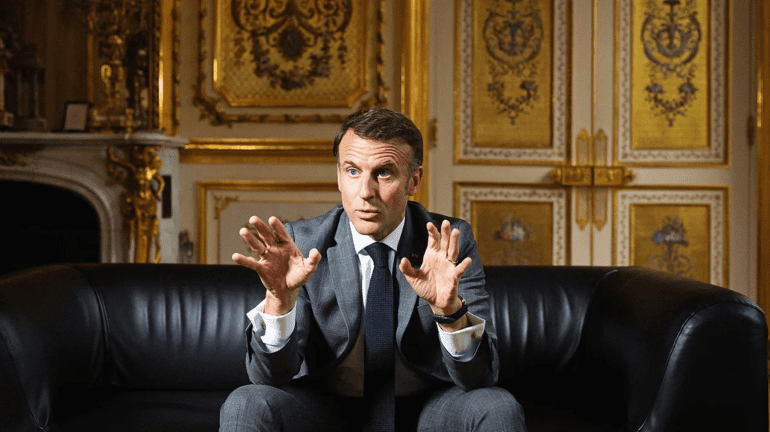- President Macron emphasizes Europe’s unique approach to AI innovation, aiming to challenge U.S. and Chinese dominance.
- French companies like Mistral AI and H are poised to become major players, backed by significant investments.
- Macron advocates for a vibrant European tech ecosystem, attracting private investments and fostering innovation.
- Europe leads in AI regulation with the EU Artificial Intelligence Act, positioning ahead of the U.S.
- Macron defends European regulations, emphasizing sovereignty and privacy protection.
- He calls for collaboration in addressing challenges posed by China, advocating for adherence to international rules.
- Macron highlights France’s neutral stance on tech regulation, prioritizing innovation over nationality.
Main AI News:
The European tech scene is undergoing a significant transformation, with AI innovation taking center stage. President Emmanuel Macron emphasized this shift, highlighting Europe’s distinct approach compared to the U.S. and China. He expressed his vision for Europe to emerge as a formidable tech force, challenging the dominance of Chinese and American tech giants.
In an exclusive interview with CNBC, Macron stressed the need for European tech giants to rival their counterparts in China and the U.S. He cited Mistral AI, a leading French AI company, as a potential key player in this endeavor, with recent investments from Microsoft fueling its growth.
Furthermore, Macron commended H, a French AI startup that secured substantial funding, signaling the vibrancy of Europe’s tech ecosystem. He emphasized the importance of fostering such innovation, not only for Europe’s benefit but also to enrich the global tech landscape.
As technology leaders gathered in Paris for the VivaTech conference, Macron underscored the significance of private investments in driving Europe’s tech evolution. Microsoft’s unprecedented commitment to France reflects growing confidence in the region’s potential as a tech hub.
Macron outlined Europe’s approach to AI, emphasizing the need for acceleration, innovation, and investment while ensuring appropriate regulation. The European Union has taken strides in regulating AI, exemplified by the EU Artificial Intelligence Act, positioning itself ahead of the U.S. in this aspect.
Addressing concerns about European regulations hindering U.S. tech giants, Macron defended Europe’s stance on online privacy and regulation. He emphasized the importance of sovereignty and democratic values in safeguarding user data, rejecting claims of anti-competitive behavior.
Regarding China, Macron advocated for a collaborative approach to address trade and innovation challenges. While acknowledging China as a formidable competitor, he stressed the need for adherence to international rules and collective action to foster innovation.
In contrast to recent U.S. actions against Chinese tech platforms, Macron highlighted France’s neutral stance, viewing technology through a lens of innovation rather than nationality. He called for a more nuanced approach in managing global tech competition, emphasizing the importance of collective efforts in shaping the future of technology.
Conclusion:
Macron’s vision for AI innovation underscores Europe’s emergence as a competitive force in the global tech landscape. With a focus on fostering innovation, attracting investments, and championing regulatory frameworks, Europe is positioned to rival traditional tech powerhouses. This shift signifies opportunities for businesses to tap into Europe’s growing tech ecosystem and for investors to capitalize on the region’s potential for innovation-led growth.

